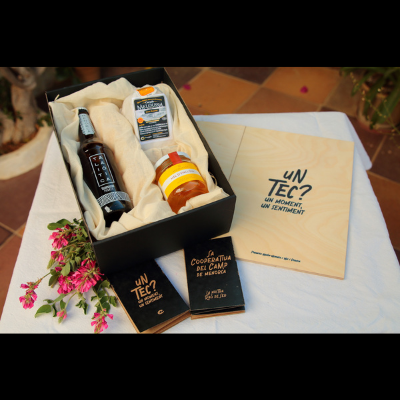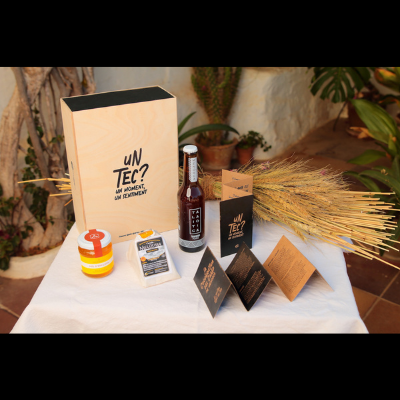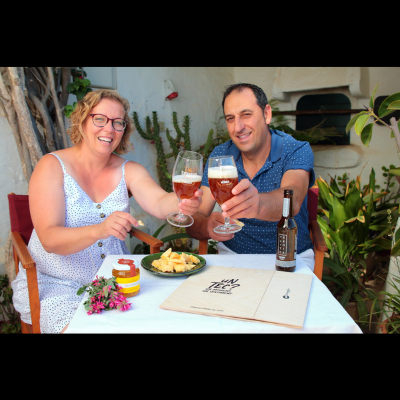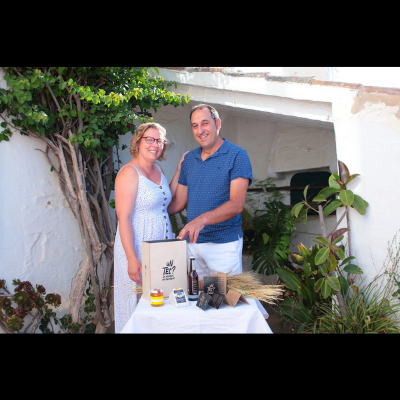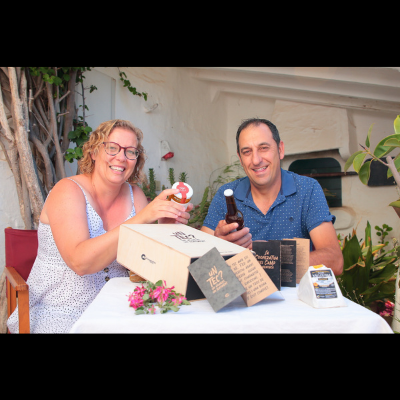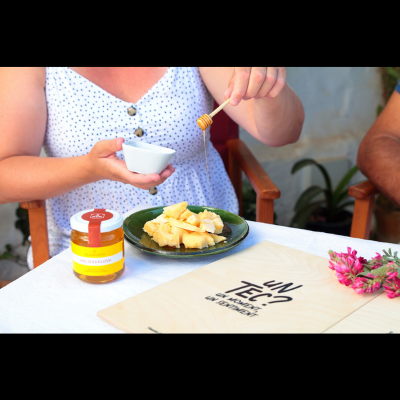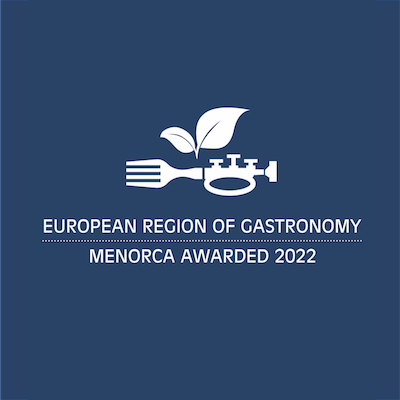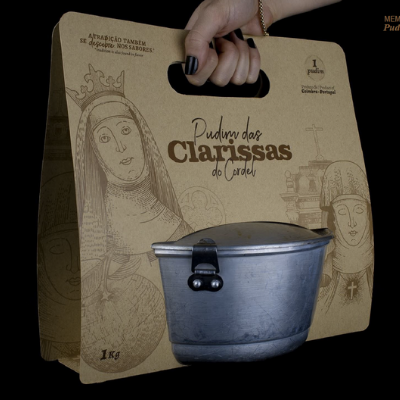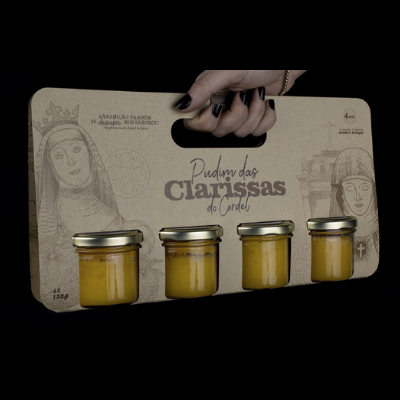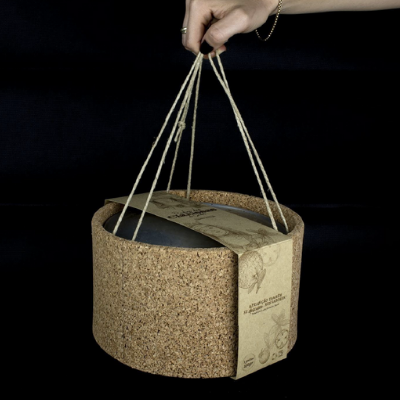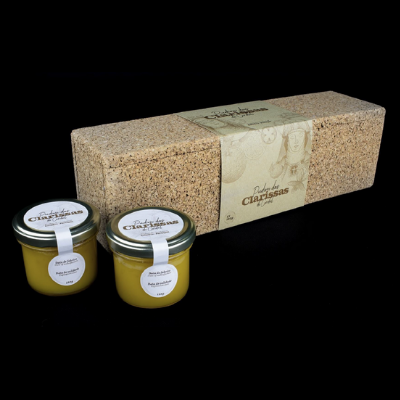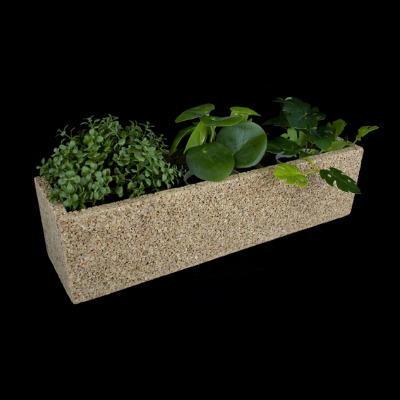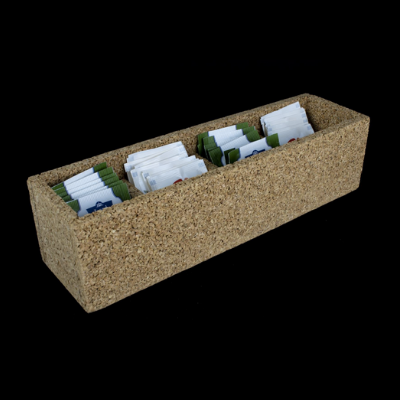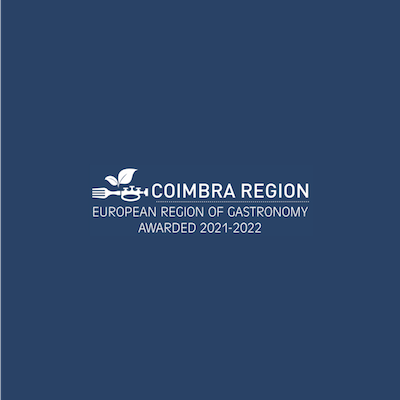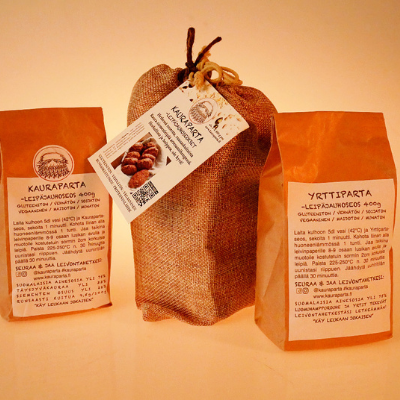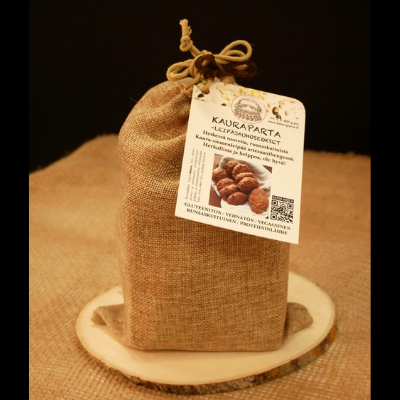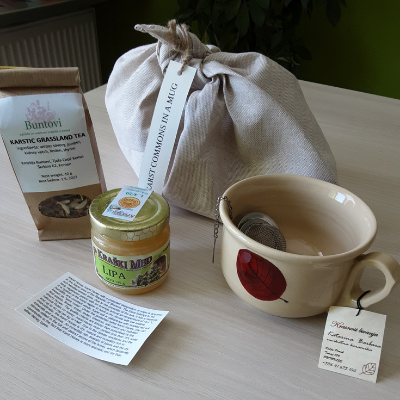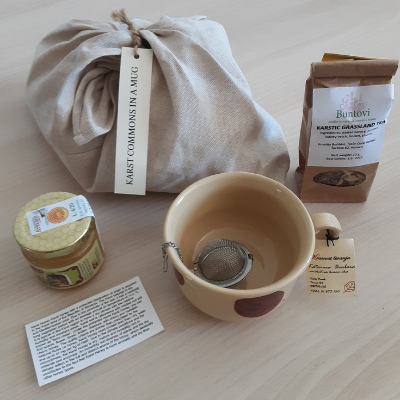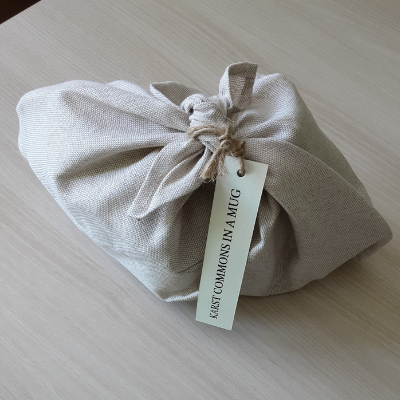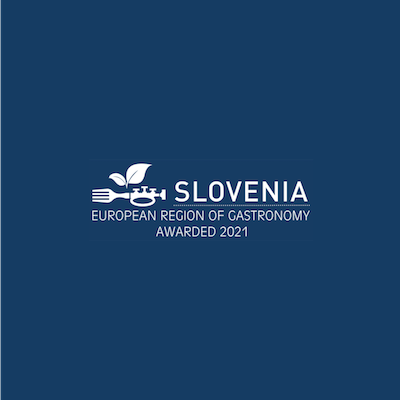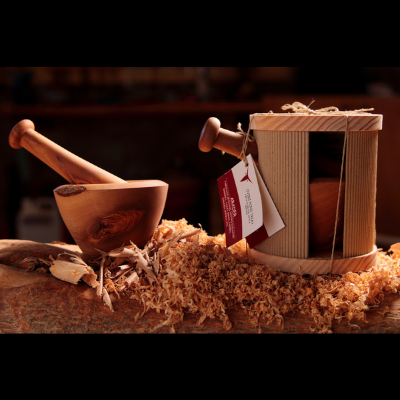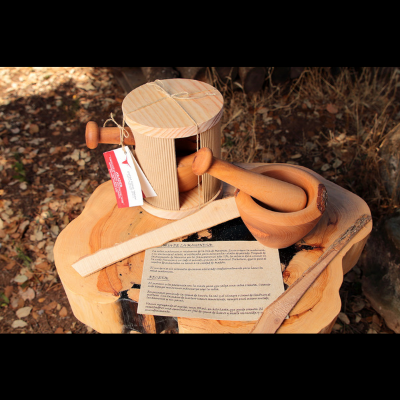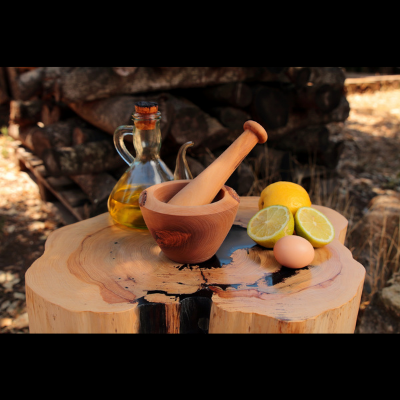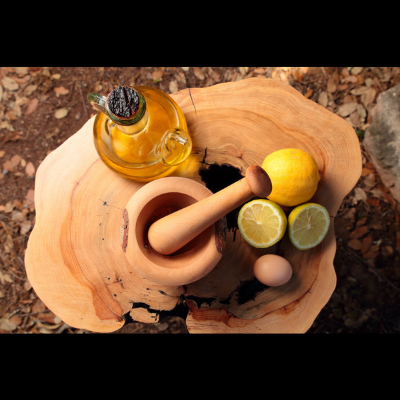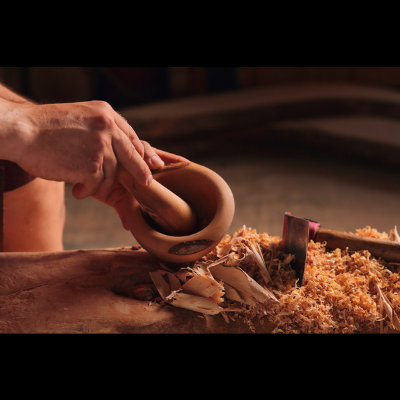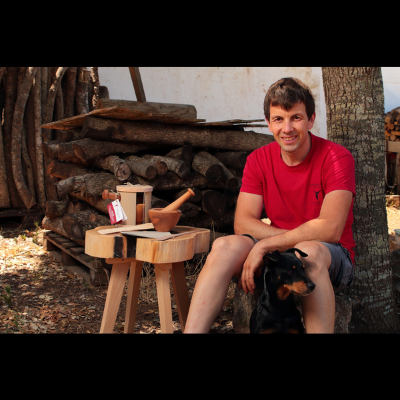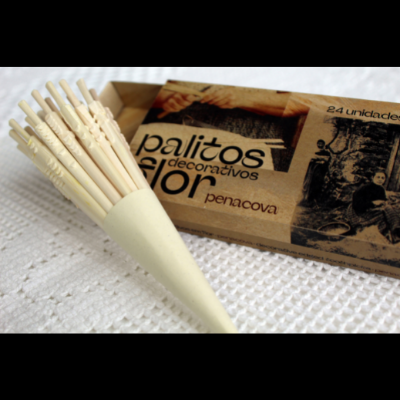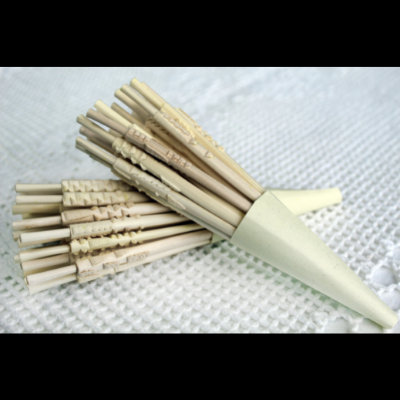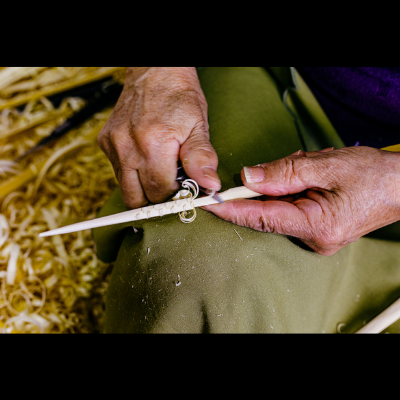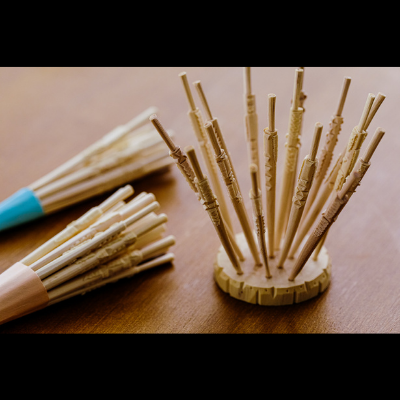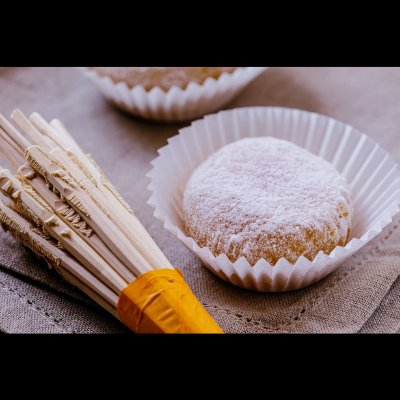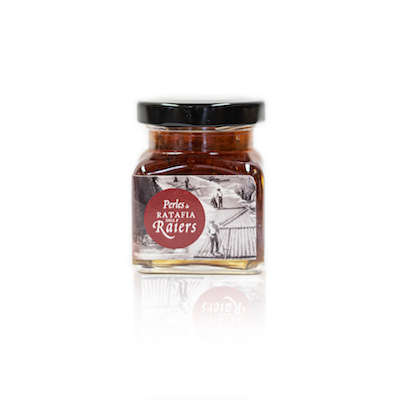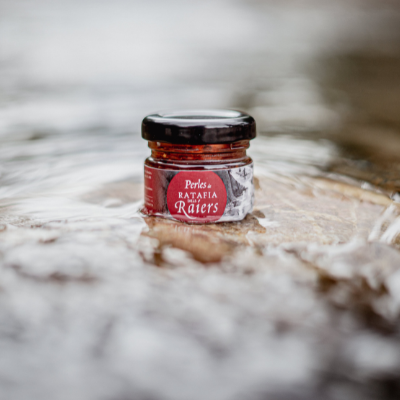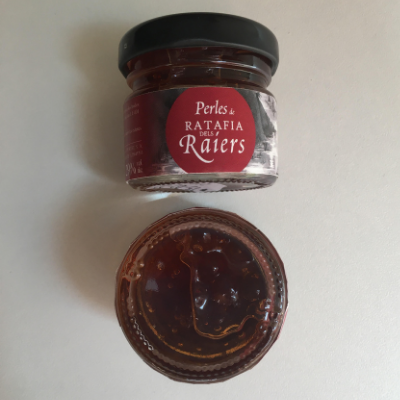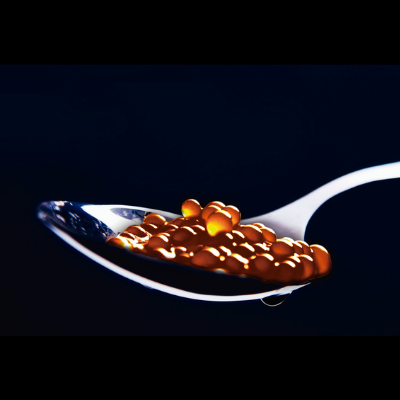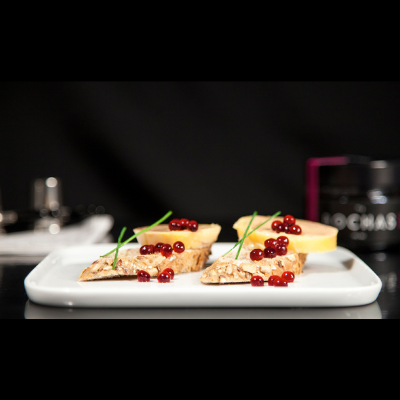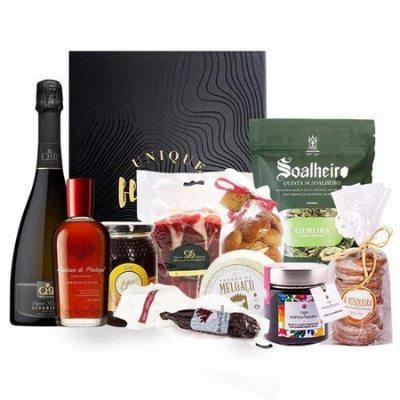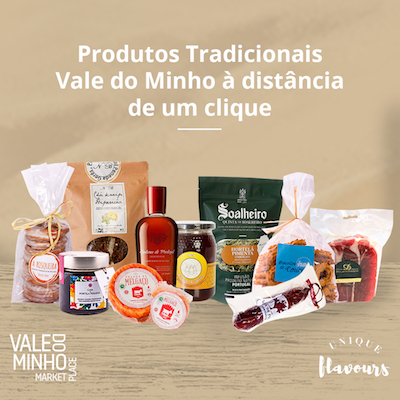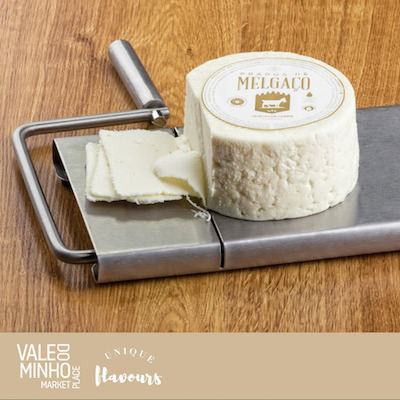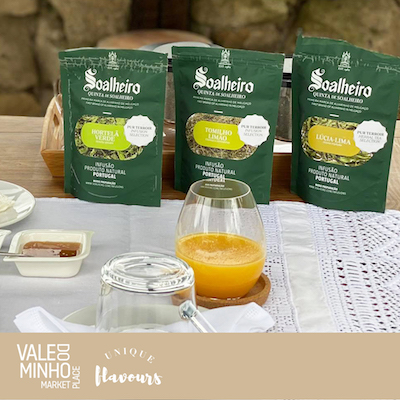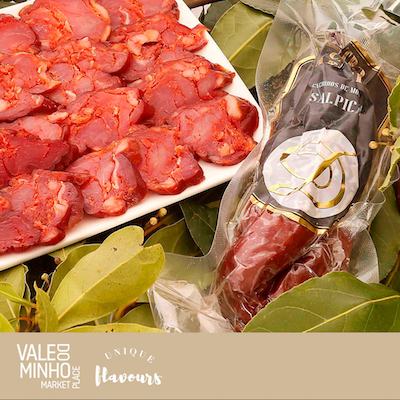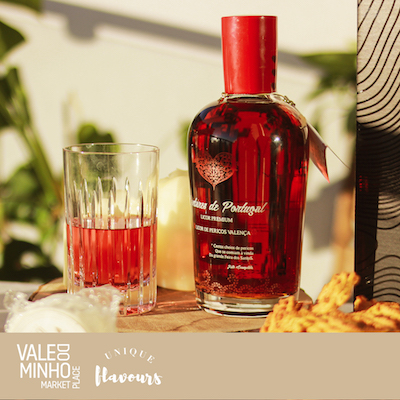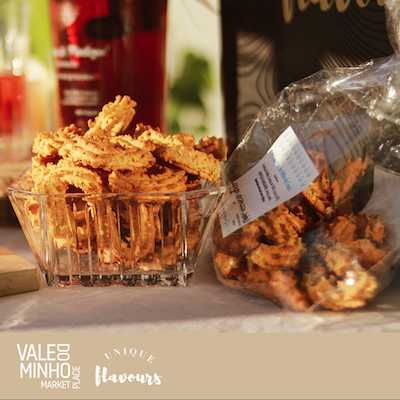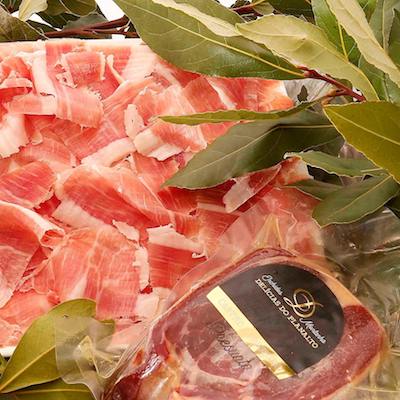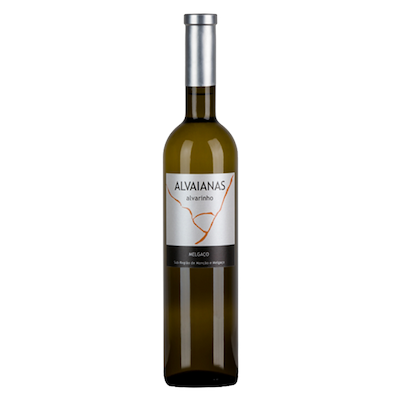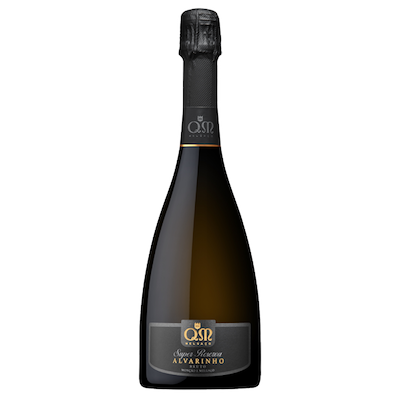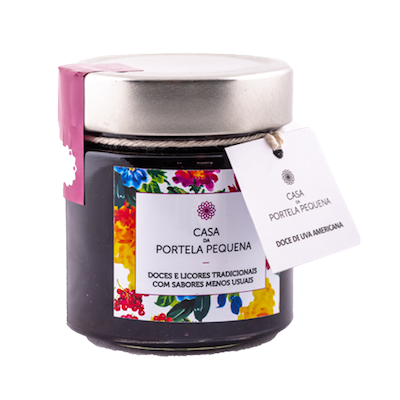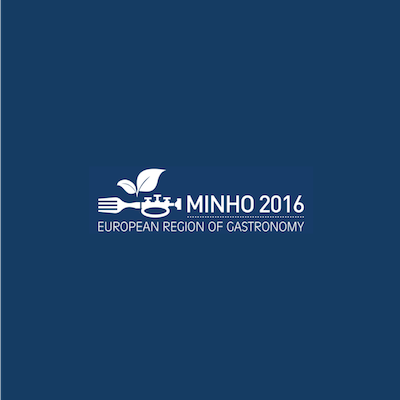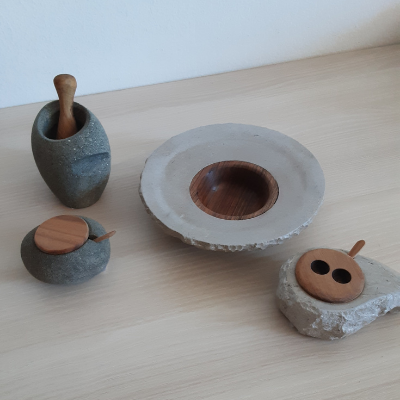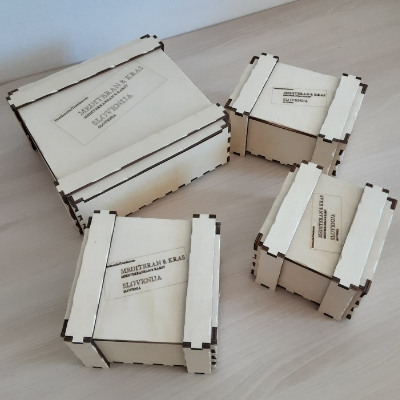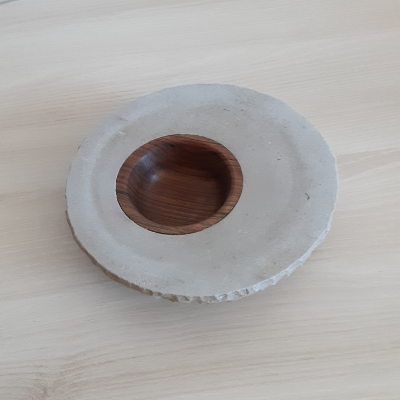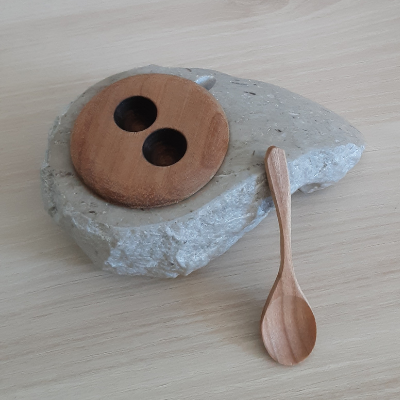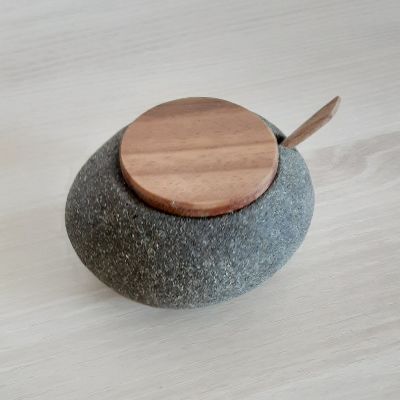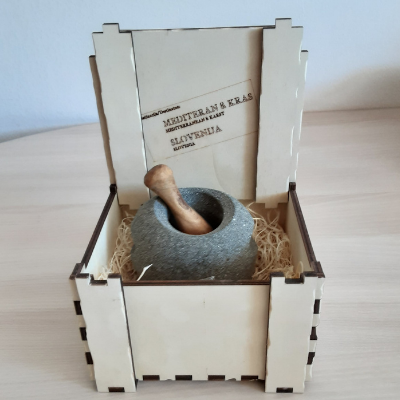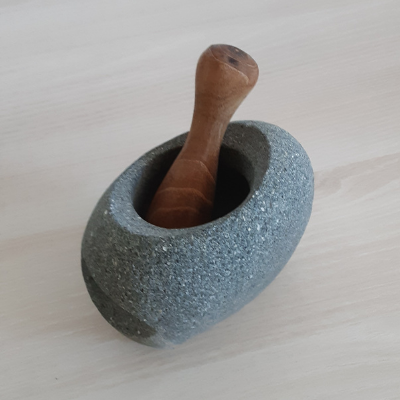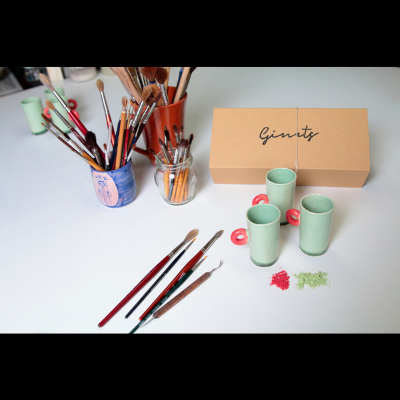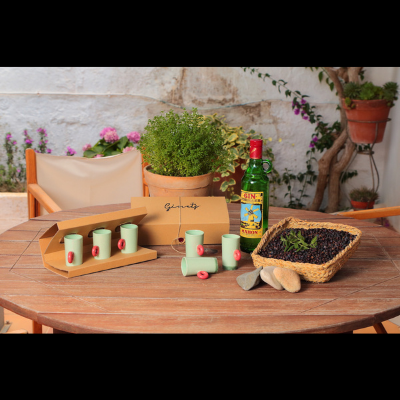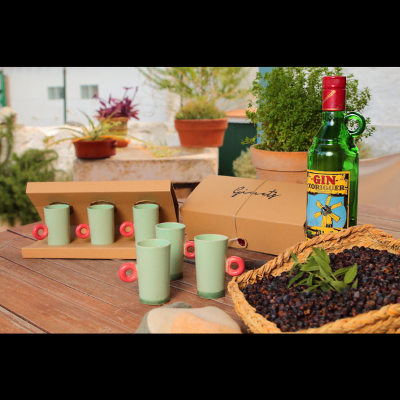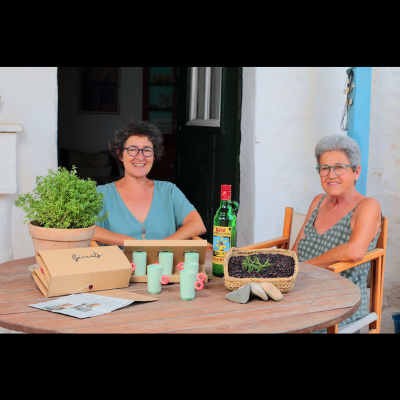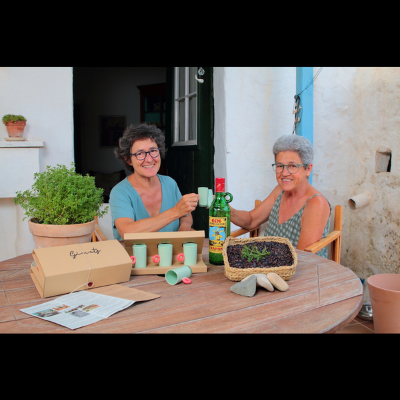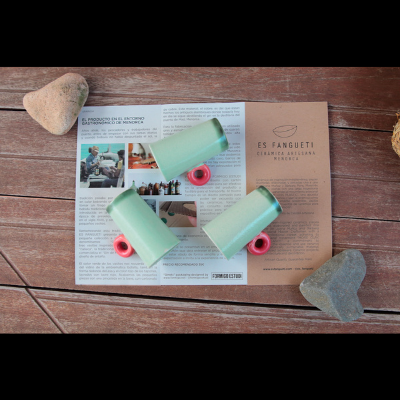![]()
European Food Gifts 2021
IGCAT’s European Food Gift Challenge 2021 took place in Coimbra Region, European Region of Gastronomy awarded 2021-2022, on 31 July 2021.
The top 10 food and food-related gifts from the European Regions of Gastronomy for 2021 were selected by an international jury of experts as best practises for their ability to combine sustainability, storytelling, uniqueness, innovation on tradition and connection with the region.
– Overall Winner –
HAVE A TEC?
The jury appreciated the way in which this gift package celebrates Menorca’s Talayotic heritage, by combining traditional cheese, beer and honey true to ancient culture. All had strong and nice tastes that impressed the jury with their uniqueness. The beautifully designed, as well as sustainable gift package also includes detailed information about the products (for example, where the bees come from that make the honey) and the producers in different languages.
ABOUT THE PRODUCT
“Tec” is a tasteful Menorcan word for enjoying truly special moments and feelings. When we go for a tec it is to get a bite or have a drink between meals. What better idea than a chunk of cheese drizzled with honey and a refreshing beer?
The use of a very Menorcan expression raises awareness of our form of speech, Menorcan, full of polished gems such as tec. The slogan “An instant, a feeling” also refers to a very typical island lifestyle, where time seems to flow more slowly, yet always time enough for us to meet in a moment of sharing with loved ones.
Have a Tec? is a project headed by the farming cooperative Sa Cooperativa del Camp de Menorca, a long-standing organisation on the island that upholds values such as commitment, cooperation, enthusiasm, and authenticity.
Three local producers have come together and developed a gastronomical pack of cheese, honey and beer, each item (including all ingredients: milk, honey, wheat, barley, aromatic herbs) having been produced locally.
The pack includes suggestions on how to best enjoy the produce, and evokes notions reminiscent of Talayotic times, which are very much in vogue at present. The attractive packaging is practical, sustainable, and reusable, which enhances the quality of the product.
The gift includes:
Meloussa Cheese (raw cow’s milk, Salt, Rennet, Lysozyme (egg derivative), Calcium chloride, Lactic ferments, Matured full-fat cow’s cheese): In Menorca, cheese has been produced since prehistoric times. From the late Talaiotic period we conserve pieces of native ceramic containing dairy product traces that prove it. So we can claim that “we’ve been making cheese forever here!” Menorcan cheese is distinctive for its intense taste, rich in nuance. This is a cheese made from raw cow’s milk hand-created by the very farmers who care for the cows. So the herd grazes on the lushest pastures the farm has sown. Then the cheese is matured in our cellars or caves at Sa Cooperativa del Camp, giving them a distinctive bouquet.
Algaiarens Honey: Algaiarens is a true paradise for Menorca’s black bees. In this idyllic setting they live a life for which any queen would give half a realm: fields given over to regenerative organic agriculture. Diverse flowering seed types are sown to the bees’ taste, so they can go about their work, happily pollinating the flowers. Algaiarens honey is characterised by its purity and loved for its taste, aroma, colour and texture. It has the character of raw honey, unique and delicious.
Grahame Pearce Talayotic beer (Water, Menorcan xeixa wheat and barley, Ragweed, Camomile, Rosemary, Thyme, Yeasts, Hops): Vicent Vila set up the venture of creating a craft beer with his friend Grahame Pearce just ten years ago. Talaiòtica Grahame Pearce beer is an innovation conceived in collaboration with the Museum of Menorca and the candidature for Menorca’s Talaiotic culture to form part of Unesco World Heritage. The Talaiòtica is a light-bodied aromatic beer with a clean dry finish. The ingredients with which it is brewed are in consonance with those found in the “deep jar” archaeological find (4th–2nd centuries BCE): common wheat and barley, artemisia, chamomile, rosemary, thyme and honey. It is an opaque, orangey-brown beer with a creamy head, light-bodied and highly aromatic with a clean dry finish.
The Have a Tec? box is a highly original ecological packaging, unique in the world. It is a box made of foldable wood, an innovative idea that transmits ecology, quality and creativity, patented by a Catalan craftsman with over 40 years’ history behind him, who aims in his own words to “change the world through packaging”. The Have a Tec? box is 100% recyclable and reusable. Most importantly, it has been manufactured with wood from controlled forestry plantations, where every time a tree is cut down, another is planted. This is officially certified by use of the accreditation mark PEFC/14-1-1.
The design of Have a Tec? packaging is the result of close collaboration with Lagencia, an advertising agency in Menorca boasting over 25 years’ professional experience. A small team made up of Catalina Cardona, a publicist, and Manel Sánchez, a designer, both specialists in long-term communication strategies for brands with soul. Lagencia is located in Sant Lluís, specifically in the Biniancollet Societat Rural Menorquina (a class of Menorcan rural business entity, or SRM). This peculiar 100-hectare space reveals a lot about the company’s DNA and way of working. Its values are shared with those of Menorcan farmers and also Sa Cooperativa del Camp de Menorca: humility, dedication and a taste for a job well done.
ABOUT THE PRODUCER
Sa Cooperativa del Camp
Sa Cooperativa del Camp de Menorca brings together over 500 partners and producers united by a single commitment: sustainability in the primary sector. Their passion: Menorca. Their goal: to conserve authenticity.
Sa Cooperativa del Camp is a farmers’ cooperative with over 76 years of history. True farming folk, they are keen to offer thier farming produce and experience as farming families committed to the land and their identity.
The vocation of Sa Cooperativa del Camp is to position the local produce of Menorca in the market, raising awareness and appreciation so as to help make the sector truly sustainable. Yet as a cooperative they also wish to reinforce the identity of their society and culture, caring for the territory and improving conditions in the environment. They give the product a differentiated route with its own formula for sale at local venues. They also strive to export using their own brand and model that they promote through Farmers & Co.
Vocation, union, passion and authenticity are some of the values that their actions highlight. In their sector they work with principles and ethical values that form their raison d’être so as to make Menorca’s riches available to all. At Sa Cooperativa del Camp they defend local produce and rural life which has been able to blend tradition and innovation with excellence and sustainability as their optimum guarantee.
Their products are the foundation of their activity: they have over 500 inventory items of fruit and veg, meat, dairy products such as cheese, along with handmade cold cuts, jams and preserves, oil, wine, spirits and honey, all from Menorca. Authentic gourmet products of the highest quality supplied directly from producer to consumers, in the optimum condition for the best enjoyment possible.
Furthermore, Sa Cooperativa del Camp offers some complementary services to reinforce their commitments and provide support to local producers. These are their produce tastings and catering events they adapt to demand. To close the circle and shine the spotlight on the producers and their products, they also organise real-life experiences, guided visits and cultural actions to give greater visibility and place added value on local produce with the programme Viu el Camp de Menorca (Experience Menorca’s Pastures).
Contact details:
Addresses:
1. Industrials s/n. POICI 07760 Ciutadella de Menorca, Balearic Islands (Spain)
2. Plaça Bassa de Sant Pere, s/n. Parcela 33, polígon La Trotxa. 07730 Alaior, Balearic Islands (Spain)
Email: info@sacooperativa.com
Phone: +34 971 380 380 / +34 669 429 446
Visits and gastronomic experiences:
Email: visitas@sacooperativa.com
Phone: +34 679 872 848
– 2nd Prize –
COIMBRA’S CLARISSAS PUDDING
The jury was impressed with the exemplary use of artists drawings and storytelling on the packaging of this delicious and traditional pudding, demonstrating a good collaboration with a local artist. The artisan has managed to capture the taste and texture beautifully despite needing to ensure the product can travel. All materials used for the packaging are recycled including glass jars, cork and carton – with further instruction on how to re-use them again. The gift comes in various sizes and prices available to suit all budgets and the largest version comes with a traditional mould and recipe to make the product at home. Finally, the package includes information about the product in both Portuguese and English.
ABOUT THE PRODUCT
In most monastic houses the sweets were made with large amounts of egg yolks. The sumptuousness of the convent sweets resulted, therefore, in the creation of splendid egg sweets. The recovery of this recipe, a legacy of the Convent of Santa Clara in Coimbra, resulted from a thorough investigation into the conventual recipes of Coimbra and in several attempts at production until a product that was as faithful as possible to its genesis was achieved.
The Clarissas Pudding, a perfect symbiosis between sugar and egg yolks, reflects the dedication that the Poor Clares have given to sweets, expertly elaborating this heritage that is urgently needed. The orange groves, abundant in the city landscape, ennoble this delicacy, sweetening the memory of those who strolled along the banks of the Mondego with cape and cassock to the sound of Coimbra’s fado.
The Clarissas’ Pudding Identity, illustrations and respective packaging were developed by the Coimbra-based Mau Maria Communication Design office. The Identity of the Pudding follows the Identity of the brand Cordel, so that there is a direct link between the product and the house that produces it with so much love and dedication. Typography refers to the old, ecclesiastical, but it is easy to see that it is a reinvigorated product. The more manual typography refers to the fact that it is a product designed by hand, a product that is still homemade.
The colours, brown tones, also follow the Cordel identity, transport us to the kraft paper, the lambs used in the old grocery stores, the earth, because we live in it and have immense respect for it. The concern with recycling and reuse was a constant in the development of the packaging presented.
Two packaging solutions were created for this Conventual Sweet, always keeping in mind the sustainability aspect:
Paper wrapping: A cheap and easy to produce and pack wrapper that makes it easy for the customer to transport the product. Produced on paper and printed with the Identity of Pudding of the Poor Clares and their own illustrations.
Cork box: A wrapper that makes it easier for the customer to transport the product, especially over long distances, as it allows to preserve the pudding’s characteristics for a longer time. Produced in cork, it contains a paper label printed with the identity of Pudim das Clarissas and its own illustrations. Due to its packaging and concept, it becomes a pleasant product to offer in any situation. This packaging solution can have a second life as a vase, tea box or other original ideas.
In both cases, when a whole Pudding is purchased in its baking form, this original form can be returned to the Cordel and the value will be discounted in the purchase of another Pudding, avoiding waste or accumulation of forms at home.
Ingredients: egg yolk, water, sugar, orange, butter
ABOUT THE PRODUCER
Cordel Maneirista/ Paulo Queirós
Cordel has 3 distinct spaces. On the ground floor there is a grocery store where they serve handmade hamburgers and sell products of Transmontana and Central Region origin, which includes the traditional and conventual sweets awarded from Coimbra. On the 1st floor there is the best Beira cuisine with Transmontana influence (origin of the Chef) and also a terrace with a panoramic view to the city of Coimbra, a glazed room and a more intimate room.
Paulo Queirós has transmontan origins (Mirandela), studied Cooking in the Oporto Hotel and Tourism School (Nucleo de Vidago) and has worked as a Chef in several hotels and restaurants until he opened Cordel Maneirista, his space in Coimbra. He has won the kitchen career prize awarded by the Confraria Panela ao Lume, is a student at the FLUC (Faculty of Letters of the University of Coimbra), in the Master’s Degree in Food: Sources, Culture and Society with a defence scheduled for September with a research paper: “Gastronomy in the press”. The case of the Coimbra Daily 1930-1934. Trainer at the EHTC (Escola de Hotelaria e Turismo de Coimbra) in Restaurant and Beverages Management and in the degree in Gastronomy. Member of the Confraria dos Enófilos da Bairrada e dos Sabores de Coimbra. Passionate about knowledge and research of Portuguese gastronomy he was designated “Ambassador of the Conventual Confection of Coimbra” in the scope of Coimbra European Region of Gastronomy 2021, distinction that allows to give visibility to what always motivated him. Doing well and defending what was left to us in gastronomic heritage so that it is not forgotten or corrupted.
Working in partnership with Eduarda Antunes (Food Engineer from the Agrarian School of Coimbra), he continues the work of research and recovery of conventual and traditional recipes of the region of Coimbra.
Contact details:
Address: Rua Carlos Alberto Pinto de Abreu 2, 3040-245 Santa Clara, Coimbra (Portugal)
Email: cordelmaneirista@gmail.com
Phone: +351 919 991 288 (Paulo Queirós): +351 239 164 261 (fixed restaurant); +351 910 822 721 (mobile restaurant)
– 3rd Prize –
KAURAPARTA BREAD FLOUR MIX SET
By Kauraparta
The jury acknowledged the Kauraparta bread flour mix set to be a very healthy product, as well as gluten free. They appreciated the rustic look of the packaging which is also very sustainable and contains nutritional information in English. Traditional, innovative and healthy, this product is accompanied by a great storytelling linking the oat to the region!
ABOUT THE PRODUCT
The starting point for developing this product was that the developer was diagnosed with coeliac disease. The result was a flour mixture for himself but also for others to enjoy. The character ‘Kauraparta’ is an uncomplicated local hero from Savo who provides its superpower for the use of every baker.
The products are based on Finnish whole grain oats (over 30%) where the company name Kauraparta (‘Oat beard’) also derives from. The products are highly domestic (more than 75%), high-fibre, gluten-free, vegan, wheat-free, dairy-free, soy-free. Thee baked bread acts as a source of protein.
The food gift package is a jute bag depicting the rural spirit, the so-called “grain bag” that creates an image of its contents, bread flour mixes.
Ingredients:
Kauraparta (’Oat beard’) bread flour mix: Whole grain oats, rice flour, whole grain rice flour, buckwheat flour, potato flour, corn flour, corn groats (GMO-free), sunflower seeds, linseeds, pumpkin seeds, sugar beet fibre, sea salt, sugar, yeast, psyllium, thickening agent (xanthan gum).
Yrttiparta (’Herb beard’) bread flour mix: Whole grain oats, rice flour, whole grain rice flour, buckwheat flour, potato flour, corn flour, corn groats (GMO-free), sunflower seeds, linseeds, hemp seeds, onion, parsley, sugar beet fibre, sea salt, sugar, yeast, psyllium, thickening agent (xanthan gum).
ABOUT THE PRODUCER
Kauraparta
Kauraparta company develops, manufactures and markets gluten-free bread flour mixes in the artisan spirit. Manufacture from raw materials to flour mixes takes place handcrafted without mechanical power.
Kauraparta is a one-man small business from Kuopio that started operations in the spring of 2020. Product development work began in early 2019. The company’s values are domesticity, nature and reliability. The values are seen as high degree of domesticity, nature friendly packaging material choices as well as product safety and quality.
Contact details:
Address: Huuhankatu 1 70600 Kuopio, Finland
Email: myynti@kauraparta.fi
Phone: +358 45 1719776
Product purchasable at: see here all outlets that sell the item (Kuopio and rest of Finland); the product can be purchased online on Kauraparta website or via email.
– Most Creative Branding –
KARST COMMONS IN A MUG
The jury appreciated that this gift provides everything you need to enjoy the traditional locally produced herbal tea from Slovenia, including sustainable wrapping to protect the products. It is an excellent tea that has a very delicate flavour and works very well with the PDO honey also included in the package. Every aspect is very well developed and the product is exemplary in its health benefits. Plus, it comes with a locally made ceramic mug as a long-term souvenir.
ABOUT THE PRODUCT
Conceived by ethnologist, cultural anthropologist and historian Jasna Fakin Bajec in cooperation with the members of the Planta association, the story of the product puts a spotlight on the natural and cultural heritage of the Karst. It intertwines fragments of the history of pastoral farming in the Karst commons and the variety of uses for culinary and economic purposes with the Karst culinary heritage.
The pack includes 10g tea of the Karst commons; 150g Karst honey; a unique ceramic mug and a mini tea strainer.
Herbal tea: Freshly picked and dried herbs conjure up the authenticity of the Karst commons in a mug of herbal tea. Blend of herbs and edible wild plants: woundwort, winter savoury, linden, thyme and juniper. The herbal tea is prepared by Karst homestead Buntovi in Škrbina. The owners run a wine farm which is also a herbal homestead. Tjaša, who is a certified herbalist, grows herbs, spices and aromatic plants which she harvests for teas, herbal salts and soaps. To pick herbs she also ventures to the Karst commons, a mosaic of meadows, former pastures and forest edges that boast a botanic treasure trove.
Honey: Aromatic Karst honey with Protected Designation of Origin from acacia that adds beneficial sweetness. The honey is produced by beekeeper Ivan Atelšek from Povirje. The diversity of plants and the dry climate are reflected in the full and distinct aroma of the Karst honey, making it more aromatic and drier than other types of honey. The proximity of the sea and a relatively long growing season contribute to the diversity of bee pasture. Thanks to the climate conditions and the local microclimate, the Karst honey is incredibly rich in minerals and enzymes.
Mug: Modelled on the traditional Karst šalčka (ceramic mugs) that are still kept in many Karstic homes. In the past, each member of the family used to have their own šalčka and was emotionally attached to it. Housewives would keep mugs of different shapes and sizes in their cupboards, and used them to serve barley coffee and wine with sugar (cukr), coffee with bread (kafe in kruh) or šoto (also know as zabayon, made with raw egg yolk with sugar, and possibly a splash of teran wine). In times of illness, šalčka would serve as a tea mug. The mug is a unique piece by ceramist Katja Prunk from Katarina Barbara Atelier, in Tomaj and will bring out the Karst flavours with its signature style.
The products are packed in a bundle made of natural fabric. In the past, children made bundles to carry their slice of bread to the pasture, and mowers would use them to bring their afternoon lunch to the field. In the summer, people used bundles when they picked smoke bush and winter savoury, which they would sell. At home, they dried their smoke bush and savoury, threshed it with flails and cleaned through a sieve before storing it in sacks. They were also used in the leather industry.
ABOUT THE PRODUCER
Društvo za razvoj kmetijstva in turizma Planta (Planta – Association for the Development of Agriculture and Tourism)
Karst Commons in a mug has been developed by the members of Planta Association, including renowned Karst caterers, tourist farms and other providers. Since its creation in 2007, the association has been actively involved in developing tourism in the rural Karst. The core of their service is culinary tradition, but their stories are always informed with contemporary knowledge and skills, creativity and innovation. Through their events and initiatives, such as the Month of Karst Cuisine and the Taste the Wild Karst festival, the association raises people’s awareness of the diverse benefits of herbs, edible wild plants and similar). In 2019, they developed a new culinary experience titled Kras/Carso Food Tour: a unique journey into experiencing the taste of the authentic Karst, a year-round experience that underlines all their efforts. Their thematic culinary tours are 5-star experiences that meet the requirements prescribed by the Slovenian Tourist Board.
Contact details:
Address: Coljava 5, 6223 Komen (Slovenia)
Email: drustvo.planta@gmail.com
Website: www.krascarso-foodtour.com
– Most Sustainable Packaging –
MORTAR AND PESTLE
By Ovidi Arader
The mortar and pestle are unique pieces displaying imperfections of the wood while at the same time they impressed the jury with the craftsmanship that left the wood soft to touch. The packaging is also an ingenious feature with information in English including a recipe of how to prepare Mayonnaise (that originates from Mahon in Menorca). The presentation and packaging really make this gift special – and might tempt you to buy another pestle and mortar even if you have several already!
ABOUT THE PRODUCT
The mortar and pestle are made of wild olive wood. These are objects that are inextricably associated with the making of one of the island’s most iconic and internationally renowned delicacies: mayonnaise. The small size of this mortar and pestle is appealing, making it a perfect gift.
Woodwork is one of the more deep-rooted crafts on the island; the craftsman who made this item is one of the leading local artisans, notwithstanding his young age.
No attempt was made to conceal any blemishes in the wood when creating these items; all imperfections are visible, which enhances the appeal and conveys a sense of how the passage of time embellishes wood. The quality of workmanship is undeniable.
The wild olive tree is characteristic of the forest areas on the island and is an important part of the plant landscape. Apart from its ecological and landscape functions, the wild olive tree, like the holm oak and the mastic, is also an important plant for man. The wood from the wild olive tree is the basic prime material for the fabrication of one of the most typical elements of the agricultural landscape on the island: the gates that separate the pieces of land, and is also used to make other objects, like handles, benches, mortars, or banisters or as combustion fuel.
ABOUT THE PRODUCER
Ovidi Pons Triay
Ovidi started as an apprentice with Master craftsman Pedro Pons. After a long apprenticeship he set up on his own until today. In recognition of the degree of maturity in his trade, he received the master craftsman certificate that accredits him as a professional of prestige within the branch of the craftsmen of Menorca.
In his workshop all kinds of tools are created in an artisanal way that combine tradition with the creativity of the Master Craftsman. His work has been awarded on several occasions:
- Award for the best traditional piece at the Craft Fair of Menorca 2009
- Popular Vote Award at the VI Menorcan Craft Award 2009
- Award for the best contemporary piece at the Menorca Craft Fair 2010
- Award for the best traditional piece at the Menorca Craft Fair 2011
- First Prize in the category of Lathe at the VII Encuentro de la Madera de Lugones 2018
- Selected in the Local Food Gift Challenge 2020
Packaging design comes from the artisan himself and is revised and adapted by the designer Iker Martínez (project manager, industrial designer, CEO Somni Projects). A container has been created consisting of two plates of recycled wood and a piece of corrugated cardboard with holes that give a glimpse of the interior of the packaging itself. All joined with a vegetal cord that unites it in a single body and that makes the set be robust and transportable. In this case no glued joint is used, which makes it easier even more so its use as well as recycling.
Contact details:
Address: Carretera Sant Climent ctra, 162, 07712 Maó, Balearic Islands (Spain)
Email: info@ovidiarader.com
Phone: +34 650213572
– Best Storytelling –
PENACOVA’S FLOWER TRADITIONAL TOOTHPICKS
The jury was impressed with these individually hand-made toothpicks – each one different from the other – with a story dating back to the 17th Century and the monastery craft tradition in Coimbra. The price of the product is extremely accessible and the wood and paper packaging is sustainable.
ABOUT THE PRODUCT
According to tradition, the manufacture of toothpicks had its origins in the Monastery of Lorvão. Made, at the beginning, by the nuns to decorate the cakes and sweets, they were later produced by the maids and, thus, they spread to the population.
The manufacture of toothpicks is a transforming activity, of pre-industrial nature, which, in several parishes of the municipality of Penacova (Figueira de Lorvão,Lorvão and Penacova), uses species from the typical endogenous vegetation cover from the banks of the River Mondego, in particular the willow and the poplar.
This activity has always had an emblematic dimension, at regional and even national level, due to the importance it takes on in the economy of the respective local communities, as well as the historical depth of this type of production, that has had an economic relevance attested since the century XVIII, but with origins associated with the Monastery of Lorvão itself since the 17th century.
ABOUT THE PRODUCER
Fátima Lopes
Fátima Lopes is a craftswoman from Penacova. Since she was 15, when she started working with her mother, she has dedicated herself to the manufacture of willow and poplar handicrafts. Her art comes from her family, which has always been working in this field and is inspired by the traditional Flower Sticks of Penacova. Sitting in her workshop, without taking her eyes off the piece in her hands, Fátima keeps her razor sharp and sculpts all the pieces that she can imagine: nativity scenes; palm trees; owls; mills; and even a Holy Queen. Fátima takes her inspiration from the pieces that her grandparents crafted, which symbolised the representative artefacts of her county’s heritage, such as the spinning wheel or the fertilizer.
Contact details:
Address: Rua da Volta – Ronqueira, 3360-198 Penacova
– Best Tasting –
RATAFIA RAIERS PEARLS
The jury found this gift to be very original, innovative and attractive. With a very good and surprising taste, the Ratafia Raiers Pearls offer an innovative and contemporary version of a very traditional liquor from the Catalan Pyrenees.
ABOUT THE PRODUCT
Ratafia pearls are small spheres made with an innovative technique, which wraps the Ratafia (typical Catalan liquor) with brown algae, making a thermo-resistant film that makes it possible to use them both with cooked dishes and desserts, either hot or cold, in a very simple way and with an elegant presentation. Ratafia pearls are a delight for gourmand palates and for lovers of ratafia, which pair in an excellent way with foie, matured cheese or toupee, cold soup of leek or melon or carrée of lamb, as with a tiramisu, a homemade flan, a chocolate cake, or a truffle nougat.
The ratafia, essentially, is a liquor made from brandy or anise, or a mixture of the two, with possible addition of sugar and maceration of green nuts and plants (herbs, spices, barks, flowers). The walnut fruit, walnuts, is the essential element for the production of ratafia. They have to be green. Aromatic herbs, however, also play an essential role in composing the puzzle that is ratafia. They can be put in more or less quantity, according to the recipe or family tradition: some put 20, 33 or even a hundred. Be that as it may, there are a few that cannot be missed, such as cinnamon, cloves, nutmeg and star anise. The list of herbs and species that can be added is endless: lemon verbena, cinnamon, tarongine, mint, wild roses, pony, St. John’s wort, elderberry, hollyhock, lemon, orange, pomegranate and thyme.
ABOUT THE PRODUCER
Licors Portet
Licors Portet is a family-run business that since 1884, from generation to generation, has elaborated artisanal liquors from the Pyrenees. Currently, they keep following old recipes and traditional procedures to flavour their liquors with different plants. Among their Pyrenean specialties is the ratafia. They also organise guided visits and workshops.
Contact details:
Address: Sant Miquel del Pui, 4, 25500 La Pobla de Segur – Pallars, Cataloonia (Spain)
Email: info@licorsportet.cat
Phone: +34 973680132
Product purchasable via email.
– Best Promotion of the Region –
EASTER BASKET
The jury was impressed with the great assortment of good tasting local food products included in the Easter Basket. This gift showcases the Minho region perfectly and highlights local PDO products.
ABOUT THE PRODUCT
For lovers of regional food from Minho, this is the best Basket you can find for your Easter Celebration. Authentic products with a unique taste that will surprise everyone around the table. From small producers to bigger ones you can taste unique flavours with the Minho characteristics.
The basket includes:
Presunto Castrejo 200-300g (by Delícias do Planalto): Presunto ham is the most noble part of the pig. Its ingredients are salt, oak or dry heather smoke, and cold and dry air, which purifies and protects it. The ideal altitude for curing is between 700 and 1500 metres, and our smokehouse is at an altitude of 1200 metres, thus making ham a delicacy with unbeatable flavour. It is matured for a minimum of one year and its quality is constantly controlled. The ham is sold whole or in pieces, without ever losing the taste that characterises it.
Salpicão de Melgaço 200g (by Delícias do Planalto): Obtained from the best pork meat seasoned with selected spices well combined, the Castrejo sausage is a product of choice. It is ideal for an exquisite and Portuguese style snack, making a perfect combination with a good cheese and Alvarinho wine, or as a starter for a meal. Delícias do Planalto: Company that produces and sells typical traditional smoked meat from the Castro laboreiro region. Delícias do Planalto has been proving the quality of its smoked meat and with the mission to continue the defence of pork meat from the Castro Laboreiro plateau.
Citron Infusion (by Quinta do Soalheiro): Soft and very delicate flavour aroma. Properties: Relaxing, antidepressant, purifying and with a strong sedative power. It promotes a feeling of general well-being. Quinta do Soalheiro: Pioneer in the creation of Alvarinho wine in Melgaço, and an international reference for wines of this variety, Soalheiro is perfectly integrated in the typically Minho landscape that surrounds it. In the seventies, the passion for viticulture led João António Cerdeira, with the support of his father, António Esteves Ferreira, to plant the first vineyard of Alvarinho and to create in 1982 the first brand of Alvarinho in Melgaço and one of the first brands of Alvarinho in the sub-region of Monção and Melgaço. Located in Melgaço (the most northern point of Portugal), is protected by a set of mountains that create the necessary conditions for better ripening of grapes from Alvarinho variety. Here, Alvarinho is special, the land is protected by a set of mountains that create conditions of rain, temperature and hours of sunshine necessary for the best ripening of grapes.
Corn and Alvarinho biscuits (by Melgaço dos Sabores): The corn and alvarinho biscuits Melgaço em Sabores are made in a traditional way with corn flour (yellow), cold butter cut into pieces, sugar, egg, water, lemon zest and alvarinho. Melgaço dos Sabores: a family-run company dedicated to the production of traditional homemade products of the Melgaço region, such as jams, liqueurs, aromatic oils, etc.
Espumante Alvarinho Super Reserva (by QM – Quintas de Melgaço): Made exclusively from the Alvarinho variety and only from grapes of excellent maturation, with a minimum ageing period of 24 months. Citrine colour, fine foam, very delicate and persistent cord. Slightly floral and fruity aroma, where tropical fruits dominate. Awarded with: 95 pts – in the 50 best sparkling wines in the world by Wine Pleasures Consumption suggestions: Aperitifs, Seafood, Fish, Goat, Suckling pig, Pastry. QM – Quintas de Melgaço: Their mission is to be a quality alvarinho wine company, sustained by innovation and brand development, bringing together synergies and enabling the most important agricultural activity of Melgaço, focused on achieving market leadership, satisfying all stakeholders of the organization.
American Grape Jam (by Casa da Portela Pequena): The American Grape Jam from Casa da Portela Pequena is the result of the combination of old knowledge and flavour. To an old recipe it was added fruit produced without any chemical products, cultivated in the Protected Area of Corno de Bico, in Paredes de Coura. From this combination, in a handmade production method, a flavour emerges that evokes gustatory and olfactory memories. As soon as we open the bottle, we are flooded with the unmistakable aroma of the grape. A sweet with a thick consistency, ideal to eat with toast and pancakes or even to accompany a cheese board. Ingredients: 60% fruit, 40% sugar per 100gr. Casa da Portela Pequena: a project of artisanal confection of sweets, jams and liqueurs. They combine traditional knowledge with a modern vision that involves betting on less usual flavours.
Cured Goat Cheese 120g (by Prados de Melgaço): Born where Portugal is born, and taking advantage of its privileged location, Prados de Melgaço is inspired by the heritage of the Portuguese cheese tradition, creating an authentic, original and unique goat’s cheese, enriching the variety of products of the region. The birth of a tradition… In this region of green pastures and pure air, where the cheese-making tradition did not arise, Prados de Melgaço integrates the privileged natural conditions in a characteristic goat cheese, with local stamp, which aims to become a reference product. To achieve this goal, Prados de Melgaço focuses the whole process on the care of their animals, ensuring the best breeding and feeding conditions to obtain exceptional milk, the raw material for a cheese of excellence. Attesting the quality of its cheese, Prados de Melgaço, with only six months in the market, H “C Q j 2 5” recognition that values the constant work and dedication and is an incentive for the future of the company.
Licor de Pericos de Valença 700ml (by Cantares de Portugal): Licor de Pericos has a sublime aroma, it’s a sweet liqueur with outstanding notes of ripe pericos. It’s a liqueur that arouses passions! Ingredients: Alcohol, Sugar, Natural Perico flavour and Water. Alcoholic Grade: 25%. Cantares de Portugal: A series of liquors that seek to depict Portugal’s tradition and cultures through flavour and scent.
Alvarinho Wine 2020 (by Alvaianas): Fortified wine, with predominance of stone fruit and some tropical fruit and a small floral touch. Region: Sub Region of Monção and Melgaço Classification: V.Q.P.R.D. White Alvarinho Cast: Alvarinho. Year: 2020. Winemaking: Marking of the harvest date after careful grape sampling Minimum bottle ageing of 2 months. Organoleptic Test Colour: Open Straw colour Aspect: Clear. Aroma: Furtive, with a predominance of stone fruit and some tropical fruit and a small floral touch. Taste: Confirms its aromatic potential through retro-nasal. Incorporated wine, persistent and harmonious, presenting a small mineral note. Quinta das Alvaianas: When the relief leans in amphitheatre over the river Minho, the vineyards of Alvaianas are located, where an incomparable wine arises, reflecting the combination of soil and weather conditions of the region, the grape variety, the effort and work of man. In these conditions, the Alvarinho grape variety, cultivated according to the most recent technologies and preserving the most ancient traditions of vine cultivation, careful selection of grapes and winemaking technology, propitiates a wine of high finesse, citrine colour, balanced, with high persistence and harmony in the mouth, resulting from the balance that presents between the alcohol content and acidity.
ABOUT THE PRODUCER
Unique Flavours
Unique Flavours is a Portuguese Marketplace with the purpose of uniting the various players of the agro-food market (local, regional and large scale producers) enhancing the online trade of food products at national and European level.
Unique Flavours joined the project Amar o Minho, led by the consortium Minho Inovação (Intermunicipal Community of Alto Minho, Cávado and Ave) in this initiative that aims to promote the local production products of Minho.
The selection of the products was made in partnership with the Instituto Politecnico de Viana do Castelo, manager of the project “Carta Gastronomica do Minho” of the European Region of gastronomy.
Contact details:
Address: Rua D. João I, nº 256 4450-162 Matosinhos (Portugal)
Email: geral@uflavours.com
Phone: +351 924074229
Product purchasable at: Unique Flavours website.
– Best Innovation on Traditional Design –
WOODLOVESTONE COLLECTION
The jury acknowledged the Woodlovestone collection as an array of beautifully crafted stone and wood objects that use traditional skills to craft contemporary design products. They also appreciated that it was presented in a sustainable packing.
ABOUT THE PRODUCT
The WOODLOVESTONE collection is made from stone and wood. The plate and the saltcellar are made from Karst limestone, the second saltcellar and the mortar are made using the river Soča gravel stone.
- PRODUCTS MADE OF KARST LIMESTONE: Why did I decide to use stone to make this memento? I chose this material because I love it and because I believe that together with Teran wine and the Prosciutto ham it personifies the Karst and the Karst soul. The sculptor Matejka Belle says: “In the Karst region lives the Karst person who is just like this stone – both hard and incredibly sensitive.
- Small Plate is made of Karst limestone and walnut wood. In it I wanted to combine two primary materials, found on Karst for centuries, wood and stone. With the stone part of the plate I wanted to stress two sides of the Karst stone, the rough as well as the sanded and polished structure of the stone. The wooden part of the product is made of walnut. The plate is suitable for serving food which is sampled in small quantities, such as various nuts, cheese, olives, mixtures of spices, dried fruit, etc.
- Saltcellar is made of Karst stone, the lid and little spoon are from walnut. With the saltcellar I wanted to stress two parts of the Karst stone, the rough and the polished structure of it. The walnut used for the lid and spoon, has been traditionally used for making wooden products for centuries. The salt cellar is intended for storing salt or other spices and also as a decorative element on the table.
- PRODUCTS MADE OF SOČA GRAVEL STONE: At first sight one would think that I made a mistake by the choice of the material here, as we imagine the river Soča to be an Alpine river. However, Soča also has its Mediterranean character. At Solkan the river gorge opens onto the Solkan plane and acquires an entirely different character from the one it had just a few kilometres further back. In the bottom part of the river Soča, the gravel stone takes more regular form, shaped by the river.
- Saltcellar is made from Soča gravel stone, the lid and spoon are made of walnut. In this product I endeavoured to stress the primary nature of the river Soča. On the outside the gravel is just as we find it on the Soča river bank. The only intervention into the nature of the gravel itself is on the outside at the bottom of the saltcellar and the hole in it. The walnut, out of which the lid and the spoon are made, has been utilised for luxury items for centuries. The saltcellar is intended for storing salt or other spices as well as a decorative element on the table.
- Mortar is made of Soča gravel, while the wooden pestle is made of acacia wood. In this product I wanted to stress the primary nature of the river Soča. The gravel on the outside again is just as we find it on the banks of the river Soča. The acacia wood in our region is used for products that require hard and enduring wood. Traditionally for example it is used for stakes in the vineyard. The mortar is intended for grinding of the spices and herbs and for preparation of herb and spice mixtures as well as making of pesto.
Packaging or boxes for the products are made of poplar tree plywood. With its shape I wanted to imitate old crates used for transport of valuable items. The delivery address was often written on these crates. This is represented by the writing on the top of the box. I decided to make wooden boxes for storing the products also as I consider them to be “safer” in those.
ABOUT THE PRODUCER
Woodlovestone – Luka Boltar
Woodlovestone philosophy is playing with wood and stone, where the creator attempts to combine the playfulness of both materials into one whole.
Contact details:
Email: luka.boltar@gmail.com
Phone: +386 41 318 938
– Best Contemporary Interpretation of Traditional Craft –
GINETS
By Es Fangueti
The jury appreciated the beautiful design of these mini-tankards for gin that have a surprisingly contemporary feel inspired by the traditional gin bottle on the island of Menorca. An excellent leaflet in English is provided within very well-designed, ingenious and sustainable packaging. The story of the ceramic and the fishermen drinking the traditional gin is transmitted perfectly.
ABOUT THE PRODUCT
Years ago, fishermen and port workers, before starting their daily tasks and when the sun had not yet risen, the tradition was to warm up by drinking a ginet: having a drink of gin, the traditional drink of Menorca introduced to the island at the time of the English rule in the 18th century, and served in small glasses.
Recalling this tradition, this small collection called Ginets includes three glasses inspired by the caneca, the traditional bottle with a handle used to sell the Gin de Menorca and which preserves the design of yesteryear. The green colour of the glasses reminds us of the colour of the glass of the emblematic bottle, as well as the round shape of the handle and the red colour of the stoppers, sealed with red sealing wax. The small pieces are finished with a brushstroke at the base, with copper carbonate. This material, copper, is what the old stills are made of, where gin is still being distilled today in the distillery in the port of Maó, Menorca.
These glasses are made of stoneware and quartz-based matte glaze, coloured with oxides and fired at high temperature. The glasses have a decidedly vintage look, with their rounded handles and medley of colours, influenced by the distinctive design of the gin bottle.
As for the packaging, it has been designed with recyclable cardboard, thought to be effective in protecting the product and feasible for transport. At the same time it is a design thought to be able to be exhibited with the ceramics, forming an aesthetic and practical set for the display assembly in the store. The product’s packaging design is by Formigó Estudio (www.formigo.net), advertising and design agency formed by Miquel Vidal Pons and Olga Marquès, located in Gandia, Valencia, with Menorcan roots.
ABOUT THE PRODUCER
Es Fangueti ceramics workshop
Es Fangueti ceramics workshop is run by ceramic artisans Barbara Pons and Joana Muñoz, who use traditional techniques to mould clay into contemporary and innovative objects. They design, elaborate and paint one by one Mediterranean-inspired ceramics. Island Master Craftsmen with a long professional career, Barbara Pons and Joana Muñoz adhere to the artisanal movement MORE CLAY, LESS PLASTIC, a commitment to return to the essence and use ceramic as a historically sustainable material.
Es Fangueti has won several awards including the 1st prize in handicrafts in Menorca (2008) and, on two occasions (2004 / 2007), 1st prize for the best contemporary piece in Mercadal’s Handcraft Contest. They have participated in several exhibitions on the island, and since 2003 they have been participating in different craft markets in Menorca as well as in Mallorca, Barcelona and Madrid.
They have the DQA nº237 (Document of Qualification Artisan of the Balearic Government) and also the Brand Guarantee Quality nº10 of the Consell Insular de Menorca.
Barbara Pons
Bachelor of Applied Arts in the specialty of Ceramics Art by the Escola Massana and the Escola d’Arts Aplicades i Oficis Artístics of Llotja de Barcelona. Since 1986 she has been doing several courses of specialisation, including moulds, ceramic screen printing, restoration and conservation of mosaics, restoration of ceramic and porcelain antiques, improvement of the use of the potter’s wheel and of specialisation in the glazes and clay fired process. She has participated in several workshops, seminars and courses on contemporary ceramics in Barcelona, Girona and Menorca. She also taught ceramics to children in the Escola Groc of Barcelona and a course in ceramics for elementary education and special education teachers in Menorca. She is qualified as Master Craftsman Potter nº631. In 1995 she founded the workshop of ceramics ES FANGUETI together with Joana Muñoz.
Joana Muñoz
She did her apprenticeship with Bárbara Pons and has done different courses of specialisation, such as firing of special glazes and ceramics bodies since 1995. She has worked for a time in Paco Lora workshop and today she is working in the ES FANGUETI workshop. She is qualified as Craftsman Potter nº193.
Contact details:
Address: Camí Guixó, 9, 07702 Maó, Illes Balears, Spain
Email: esfangueti@gmail.com
Phone: +34 680 13 79 55
Product purchasable at: see here all outlets that sell the item; or contact Es Fangueti directly.
The European Food Gift Challenge 2021 was organised by IGCAT and hosted by

